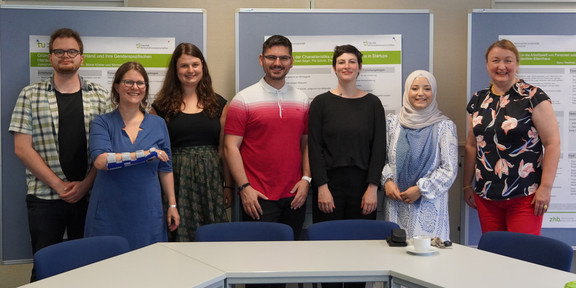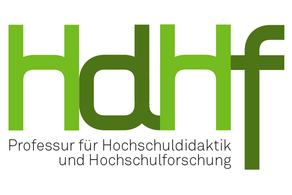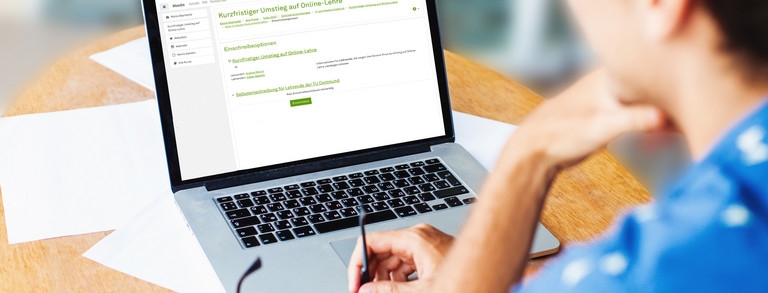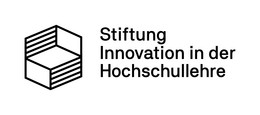Key Take-aways and Best Practices from the STARK Project

The STARK Project
Over the period from September 2022 to August 2023, the Professorship of Higher Education in cooperation with the Division of Academic Teaching & Faculty Development at TU Dortmund has conducted the project STARK – Students as Agents of Change. Within the framework of the project, an innovative, research-based and student-centered flipped classroom module has been developed in the Bachelor of Science program in the Department of Business and Economics at TU Dortmund University. The practical student-centered innovation was underpinned by research on liminal spaces in research based learning, while acquiring '21st century competencies'.
Findings
Self-directed and -organized group work on collaborative research projects, as well as student involvement in researching liminal spaces through inquiry-based learning, fostered competencies of scholarly work as well as “21st century competencies”. Research was based on pre- and post- survey design as well as focus group discussion to understand student views on the hurdles for learning in the flipped classroom design.
Take-aways
- Students vastly indicated a preference for hybrid teaching as a mode of instruction. They found this format extremely helpful in acquiring research based skills as it allows for flexibility, ability to plan in advance, deal with uncertainties of commuting by train or health issues, and supports work/study balance.
- The challenges for learning in the flipped classroom format included the lack of social interaction with teachers and fellow students, the lack of structure and the motivation to learn.
- Students were engaged in shaping seminar design and would like to have more influence in shaping the teaching at their university.
Best practices
- Within the seminar design, fixed dates in presence with online group work and ad hoc online meetings combined worked very well.
- The seminar in the flipped classroom design combined with binding, previously communicated milestones that were communicated via Moodle as well as in the first meetings were indicated as helpful.
- The teaching concept ensured that students felt involved in the seminar. This was realized through a high degree of learning autonomy, decision-making autonomy regarding their research projects, the joint definition of rules for digital communication and continuous feedback loops on teaching. Among other, students advocated for the implementation of an all-cameras-on-rule for hybrid and digital seminar sessions.
- The greatest liminal spaces included research-based tasks and assuming a role as a researcher. The solution that worked well included flexible provision of learning materials in terms of time and place (made possible by the flipped classroom approach) and implementation of (peer) feedback mechanisms.
- Without direct instruction or guidance from the instructors, students reviewed each other’s research within groups and provided constructive feedback. This included editing and improving each other’s individual chapters and providing guidance on research tasks, such as finding an interview partner. These self-directed peer-feedback processes fostered a culture of mutual learning, which also improved the quality of the research. Moreover, through this self-initiative, students became active participants in the learning process. Peer feedback processes promoted critical thinking and collaborative problem solving among students, which are important 21st century competencies and skills.
Sustainability of the Project
In order to increase the quality of hybrid teaching, the technical equipment of a seminar room was redesigned. This ensures optimal implementation of hybrid teaching also in the future.
To ensure knowledge dissemination and sustainability of the project, a range of knowledge transfer measures have been undertaken within our university as well as internationally. The open seminar session within the WiWi department at TU Dortmund was organized, where students had a chance to present their projects to a broader public in a hybrid format and discuss their findings. Further, TU Dortmund University's Digital Lunch was another occasion to present the STARK project and to show the functionalities of the newly equipped hybrid seminar room. Findings from the STARK project will further be disseminated among academics from various faculties as an example of good teaching at TU Dortmund’s annual Start in die Lehre introduction to teaching days in September.
Internationally, we presented the first semester findings of the project at the EURAM conference in Dublin, June 2023. The conference paper “Students as Actors of Change: Student Perceptions and Student Agency in the post-COVID Digital Transformation of Academic Teaching” was awarded the 2023 Most Inspirational Paper Award in the General Track of SIG 13 Strategic Management at the EURAM Conference Further, the findings of the overall project were presented at the Medical Education Conference at the University of Lodz, Poland, in September 2023.
The project was funded within Freiraum 22 program of the Stiftung Innovation in der Hochschullehre.






